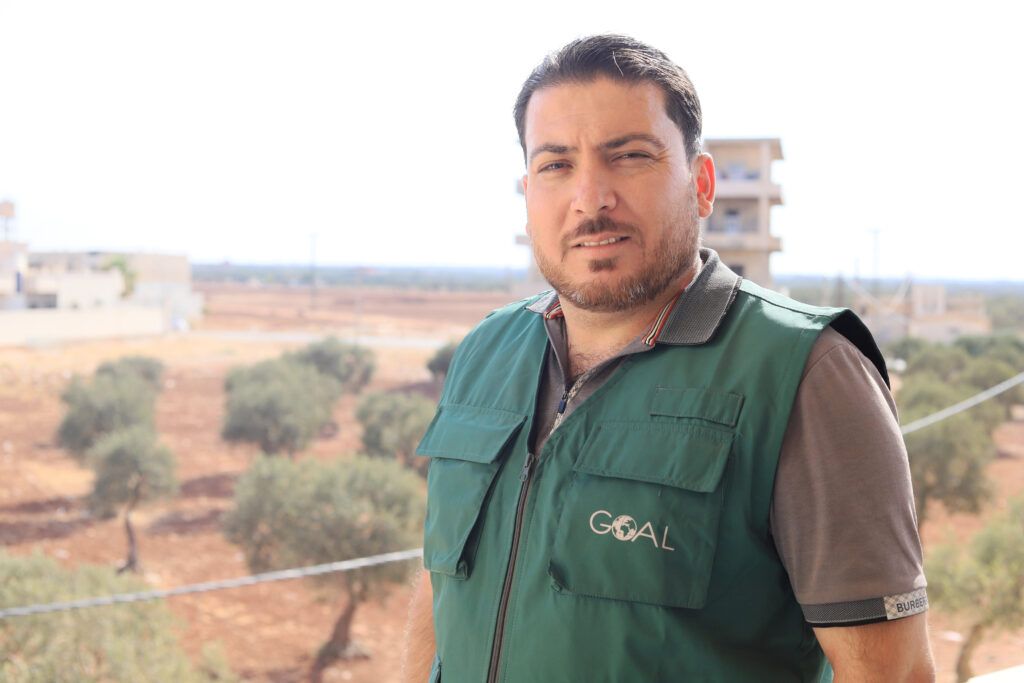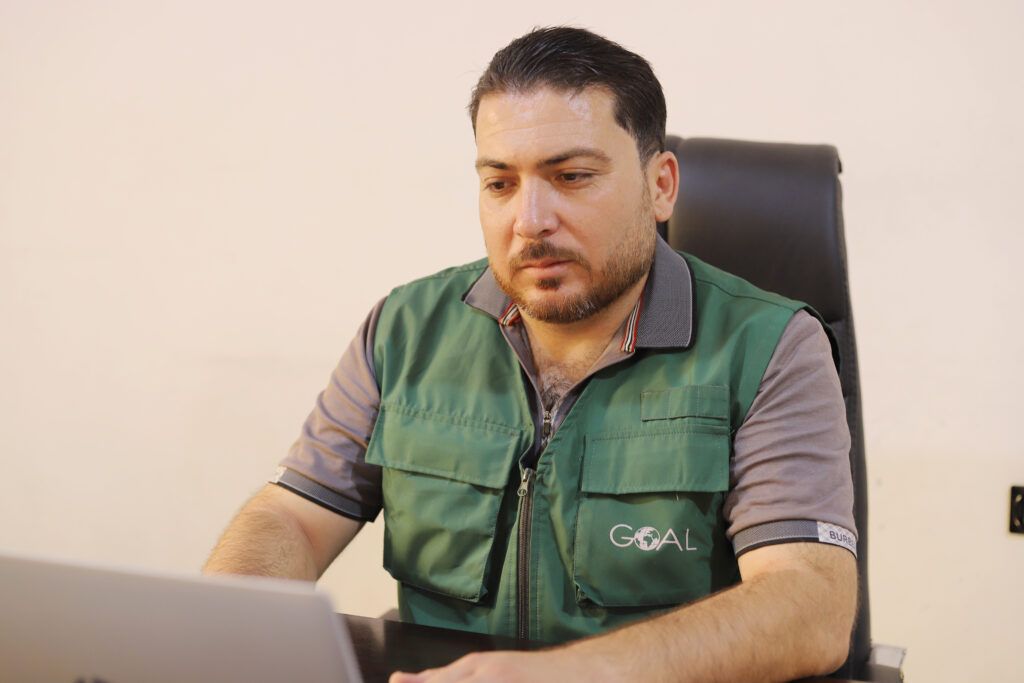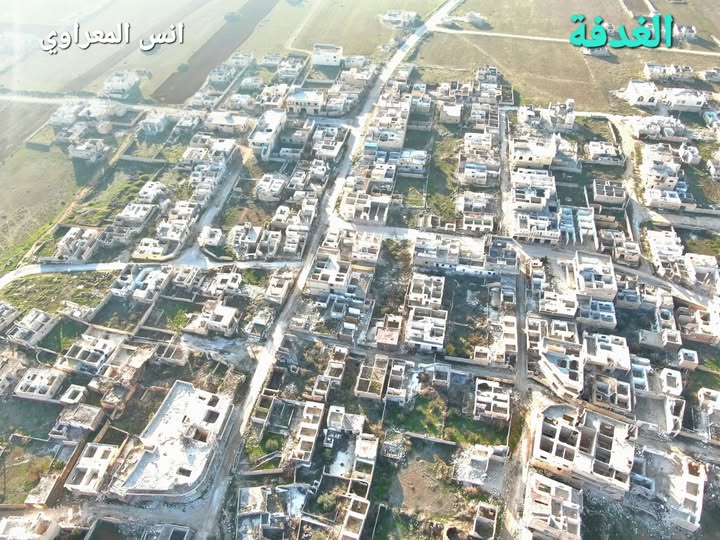 Blogs
Blogs
August 18, 2025 • 3 min read
On World Humanitarian Day 2025, we hear from Mohammad Al Rahmoun - a Field Accountability Manager with GOAL. Mohammad grew up in a small village in northwest Syria. This is his personal story, told in his own words, of what it means to be both a humanitarian and a displaced person. After losing his home and being separated from his family, Mohammad continued to serve on the frontlines of the Syria crisis, supporting the urgent needs of other displaced people while facing his own displacement. His journey is one of resilience, sacrifice, and unwavering dedication - showing up every day to give others hope, even in the midst of his own struggle.
I am Mohammad Al Rahmoun, a Field Accountability Manager with GOAL. I was born and raised in Al-Ghadafah, a small village in the Maarrat al-Nu’man area of Idlib governorate. It was once a peaceful place where generations of families, including mine, built their lives and dreams. That peace was shattered by the war.
My village was reduced to rubble, and every single resident, myself included, was forced to flee. In 2015, I joined GOAL with a strong commitment to support people affected by the conflict, never imagining that I would one day stand among them as a displaced person. In 2019, everything changed—both my personal life and my professional journey were tested in ways I could never have foreseen.

Mohammad Alrahmoun at GOAL Syria-Idlib.
That year, my village and the nearby towns were heavily bombarded and eventually overrun. My family, relatives, and neighbours were forced to flee. It was not just a displacement—it was a collapse of life as we knew it. Entire communities were wiped out in days. The emotional and psychological trauma was immense, and the displacement crisis reached a peak.
At the time, I was working in GOAL’s Complaints and Feedback Department. In the middle of this mass displacement, we received up to 700 communications a day, spanning requests for assistance to requests for information. Each person who walked into the office was carrying unimaginable grief and desperation. Many of them had lost their homes, loved ones, and stability. They were tired, angry, and often overwhelmed—some expressed that through frustration and even aggression.
What they didn’t know was that I, too, was displaced.
My own family had lost everything and had no shelter. I was supposed to be with them, finding them a place to stay, helping them settle, ensuring they were safe. But instead, I remained in the office, listening to others in the same situation. It was a painful choice, but I knew that hundreds of families needed someone to hear them, to stand with them, and to deliver their voices to the organisation in a clear, organised way.
Fortunately, I work in the field of accountability, a sector built around the Core Humanitarian Standard, which places affected people at the centre of response efforts. My personal experience of displacement gave me a deep connection to the people we served.
I knew their pain, not as an outsider, but as one of them.
This made me even more determined to make sure their feedback was not just collected but acted upon. I placed community concerns at the center of my daily work, even when the pressure was high and my emotional strength was low. The weight of war and personal loss was heavy, but serving others gave me purpose and resilience.

Mohammad Alrahmoun at GOAL Syria-Idlib Office.
Years have passed, and while the scars remain, there is a glimmer of hope. Some families, including mine, have started to return to Al-Ghadafah, despite the devastation. My village is now largely rubble, but its people are slowly coming back, rebuilding piece by piece.
This return is not only about physical reconstruction, but also about restoring dignity and hope. It shows the strength of a community that refuses to disappear.
As someone who is both a humanitarian and a displaced person, I carry a responsibility that is deeply personal. I believe those of us who have lived through these experiences bring unique compassion and insight into our work. We don’t just hear the pain—we feel it.
I continue to hope for a future where peace and prosperity return to Syria. Until then, I will keep serving, rooted in my experience, strengthened by my community, and driven by the belief that our shared suffering can become a foundation for healing.
Our dreams, our hopes, and our homes are the same — all without a roof.
أحلامنا,آمالنا وبيوتنا متشابهة, كلها بلا سقف.

Mohammad’s home village, Al-Ghadafah, in Maarat al-Numan, Idlib, Syria, after the war.
